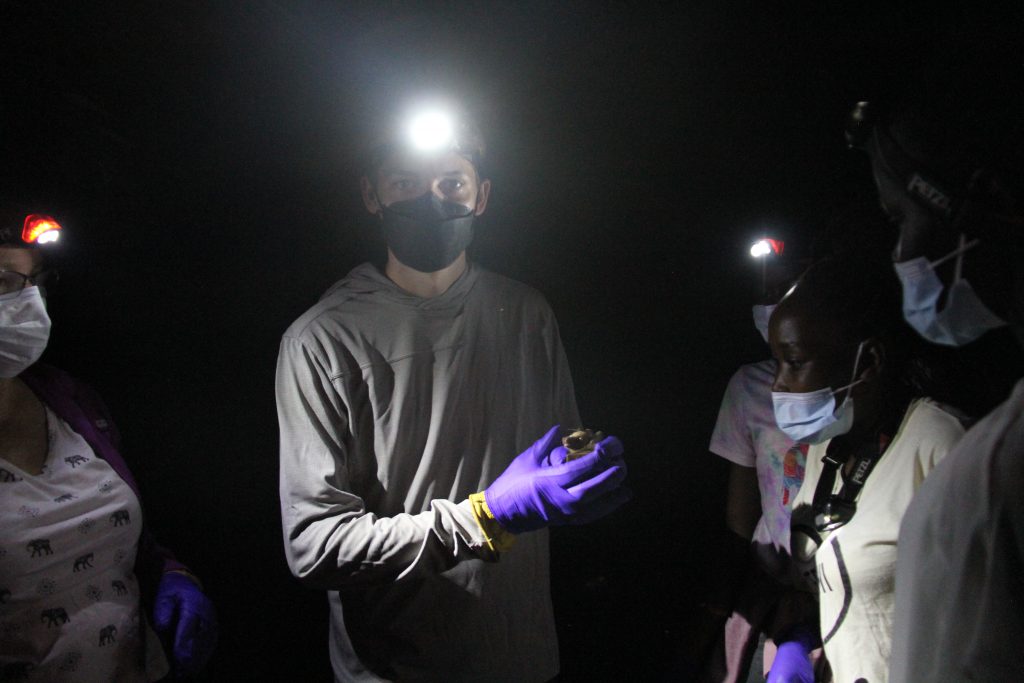Search & Additional Links
Search
Additional Links
Submenu-
Find Information For...
Find information for
@BucknellU Social Media Accounts
@IAmRayBucknell Social Media Accounts
Current Research Lab
Three students in the field preparing to collect bat samples.
Current Students
- Matt Repke (’24)
- Briston Bayle (’24)
- Jasmine Gao (’24)
- Sara Talmage, NSF Project Scientist
- Luis Víquez Rodríguez, Bat Ecology Postdoctoral Scientist

Want to learn more about Bucknell?